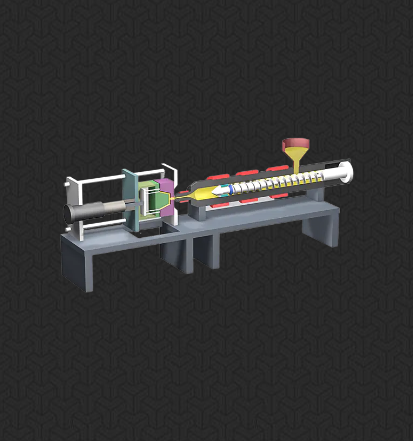Rapid prototype plastic injection tooling offers several benefits in terms of efficiency and cost-effectiveness. Let's explore these advantages in more detail:
Accelerated Development Cycle: Rapid prototype tooling enables faster development cycles by reducing the time required to produce functional plastic parts. Traditional tooling methods can take weeks or even months, whereas rapid prototype tooling can produce parts in a matter of days or even hours. This accelerated process allows for quicker design iterations, reducing time to market.
Cost Savings: Rapid prototype tooling can significantly reduce costs compared to conventional tooling methods. Traditional tooling often involves high upfront costs for creating molds and tooling equipment, which may not be justifiable for small production runs or prototyping purposes. With rapid prototype tooling, the tooling costs are lower, making it more economical for small batch production or initial product testing.
Design Validation and Optimization: Rapid prototype tooling allows designers and engineers to validate and optimize their designs before committing to mass production. By producing functional prototypes with the same materials and processes used in final production, potential design flaws or issues can be identified and corrected early in the development cycle. This helps prevent costly modifications or rework in later stages, saving time and resources.
Flexibility and Agility: Rapid prototype tooling offers greater flexibility and agility in product development. As the tooling process is faster and more affordable, it becomes easier to experiment with multiple design variations, materials, and configurations. This flexibility enables iterative design improvements and allows for better customization to meet specific customer requirements or market demands.
Reduced Lead Time: Rapid prototype tooling shortens the overall lead time from concept to production. With quicker tooling and part production, companies can accelerate their product development timelines and respond faster to market opportunities. This agility is particularly advantageous in industries where time-to-market is critical, such as consumer electronics or automotive.
Market Testing and Feedback: Rapid prototype tooling enables companies to produce small production runs for market testing and gathering customer feedback. By having actual functional parts in hand, companies can conduct real-world testing, evaluate product performance, and gather valuable insights before investing in full-scale production. This helps mitigate risks and make informed decisions based on market response.
Iterative Refinement: Rapid prototype tooling allows for iterative refinement of the manufacturing process itself. By producing parts quickly, manufacturers can test different process parameters, tooling modifications, and material variations to optimize the production efficiency and quality. This iterative approach leads to continuous improvement and cost reduction in the final production stage.

